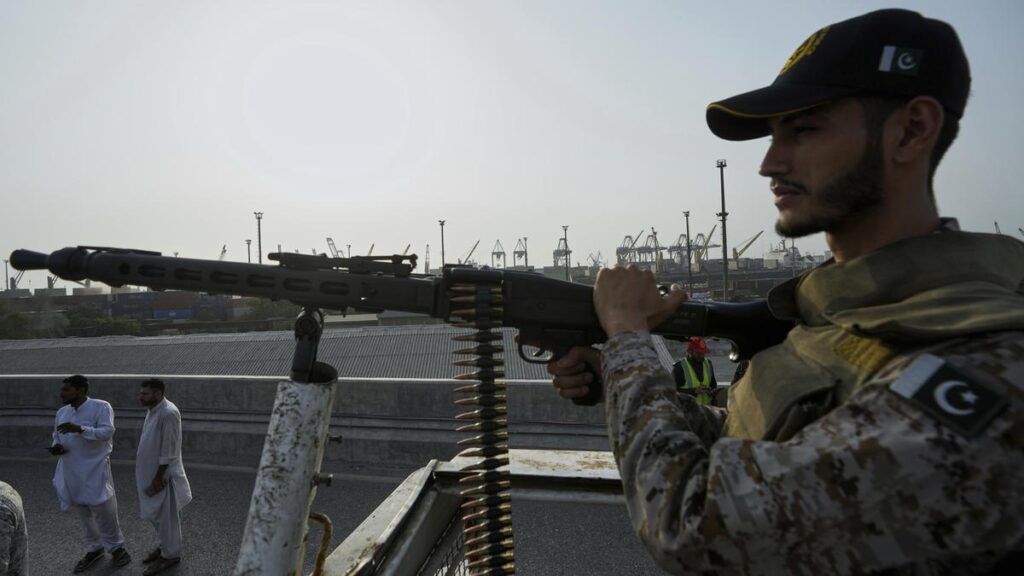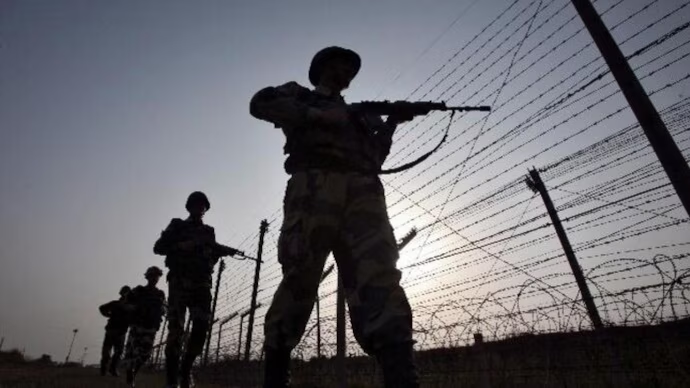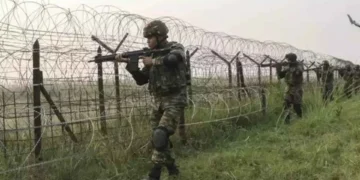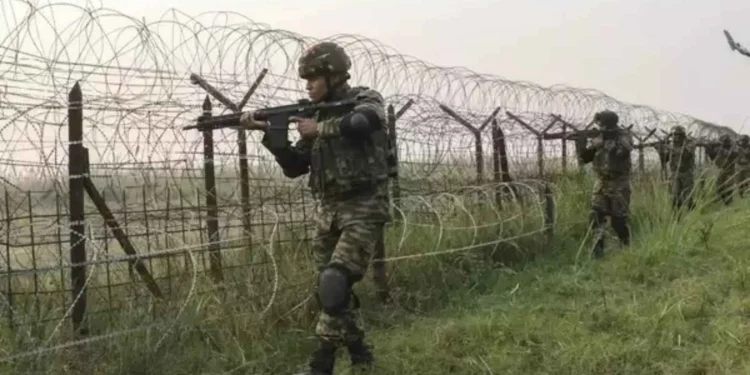Top military officials from India and Pakistan are set to engage in talks as the ongoing ceasefire along the Line of Control continues to hold, signaling a possible thaw in relations.

Top military commanders from India and Pakistan are scheduled to hold talks on Monday to finalize the specifics of the ceasefire agreement reached over the weekend.
The ceasefire, facilitated by the United States, has so far held firm following four days of heightened tensions marked by heavy shelling and airspace violations along the border.
On Saturday, President Donald Trump announced that India and Pakistan had agreed to a ceasefire, stating that “the time had come to end the current hostilities, which threatened widespread devastation and loss of life.”
Since then, both countries have halted direct confrontations but remain on alert, each cautioning the other against breaching the truce.
India announced on Monday that it would reopen 32 airports for civilian operations, reversing an earlier decision to keep them closed until Thursday due to security concerns.
This move comes amid heightened tensions in the long-standing conflict between India and Pakistan over the Kashmir region—a disputed Himalayan territory that both nations claim entirely but govern in part
Recent clashes between the two nations have escalated dangerously, with both sides refusing to de-escalate tensions for several days, raising fears of an all-out war. According to official statements, dozens of casualties were reported on both sides during four days of intense fighting last week, which included heavy artillery fire near the disputed border area.
Following the ceasefire, both India and Pakistan claimed military success.
On 7 May, India announced it had carried out strikes on nine locations within Pakistan and Pakistan-administered Kashmir, in retaliation for a 22 April militant attack in Indian-administered Kashmir’s Pahalgam valley that killed 26 people.

India attributed the attack to a Pakistan-based militant group, an allegation that Islamabad firmly denies.
In the days following the initial airstrike, tensions between India and Pakistan escalated sharply, with both sides accusing each other of cross-border shelling and the downing of aircraft and drones violating their respective airspaces.
As hostilities intensified, each nation claimed to have targeted and damaged the other’s military installations. Indian authorities stated that their forces had struck 11 Pakistan Air Force bases, including one near the capital city of Islamabad in Rawalpindi. Additionally, India asserted that it inflicted heavy casualties on Pakistani forces along the Line of Control, estimating between 35 to 40 fatalities. India also acknowledged the loss of several of its own aircraft in the exchange.
The Indian defence ministry said the strikes – named “Operation Sindoor” – were part of a “commitment” to hold “accountable” those responsible for the 22 April attack in Pahalgam, Indian-administered Kashmir, which left 25 Indians and one Nepali national dead.
But Pakistan, which has denied any involvement in that attack, described the strikes as “unprovoked”, with Prime Minister Shehbaz Sharif saying the “heinous act of aggression will not go unpunished
Table of Contents
Pakistan has acknowledged that certain Indian projectiles landed on its air force installations. Meanwhile, India’s defence forces reported striking nine militant training camps in Pakistan and Pakistan-administered Kashmir, claiming over 100 militants were killed in the operation. In response, the Pakistani military stated that it had targeted approximately 26 Indian military sites and deployed drones over New Delhi.
India has acknowledged that some Pakistani projectiles struck its air force bases, though it made no comment regarding the reported incident in Delhi. Meanwhile, Pakistan has claimed it downed five Indian aircraft, including three Rafale jets—an assertion India has not confirmed. Indian authorities did state on Sunday that “losses are a part of combat.” Pakistan also denied holding an Indian pilot, who was said to have ejected after an aircraft crash. India confirmed that all its pilots have returned.
READ ALSO……Did Critical Intelligence Prompt US Intervention in the India-Pakistan Conflict















 Categories
Categories









